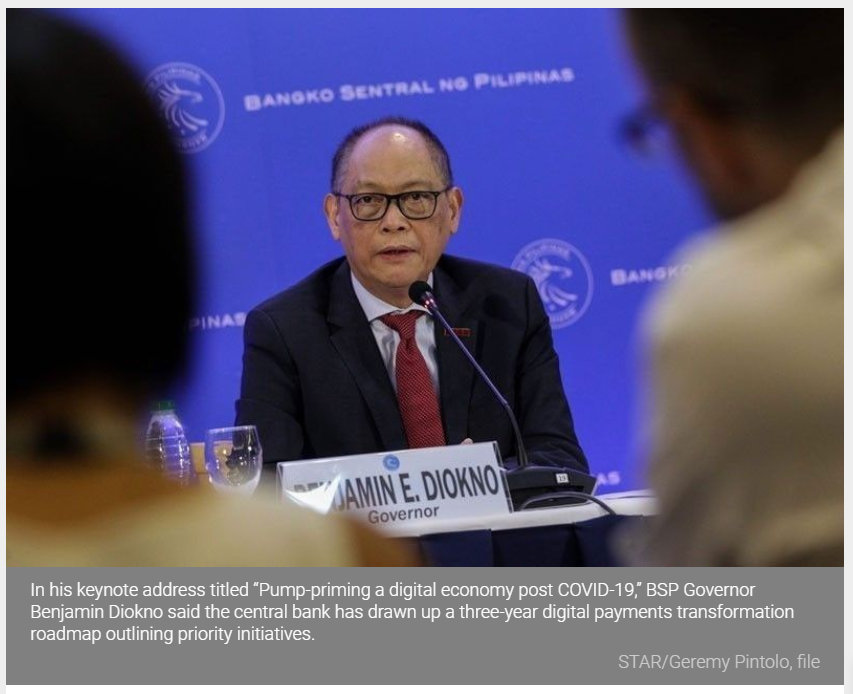Philippines: Fintech to play crucial role post-COVID — BSP
MANILA, Philippines — Financial technology (fintech) companies are crucial in helping the government shape and rebuild a new economy after the coronavirus disease 2019 or COVID-19 pandemic, according to the Bangko Sentral ng Pilipinas (BSP).
In his keynote address titled “Pump-priming a digital economy post COVID-19,” BSP Governor Benjamin Diokno said the central bank has drawn up a three-year digital payments transformation roadmap outlining priority initiatives.
“There is no arguing that the new economy is digital. Our aspirations for a more inclusive and prosperous post COVID-19 world necessitate putting in place the critical pillars of a digital economy, including robust digital infrastructure, digital skills, e-government, digital ID, and an enabling legal and regulatory framework,” he said.
Diokno told participants of the digital forum organized by the Fintech Alliance of the Philippines that the pillars of the roadmap include digital payment streams, digital finance infrastructure as well as data governance and standards.
“From where I stand, fintechs, as an innovative provider and enabler of digital financial services will find compelling opportunities in this digital transformation agenda,” he added.
He said Congress has moved to file proposals for structural reforms and massive economic stimulus package targeting micro, small, and medium enterprises (MSMEs), among others.
“Government agencies and banks need digital solutions to efficiently deploy funds to target recipients of these billion-peso support measures and loan programs,” the BSP chief said.
President Duterte signed Republic Act 11469 or the Bayanihan to Heal as One Act and launched key programs to cushion the adverse impact of the COVID-19 pandemic on MSMEs and the informal sector.
These included the P205-billion social amelioration program covering informal sector workers, the P51-billion wage subsidies for employees of small businesses, a P1.2-billion guarantee fund for MSME loans under the PhilGuarantee as well as the P2-billion soft loan program for MSMEs under the Department of Trade and Industry as well as the Agricultural Credit Policy Council.
Diokno said fintechs could offer turnkey loan origination and underwriting platform for the government’s direct lending programs as well as digital solutions for MSMEs pivoting to ecommerce.
He added some fintechs could serve as digital payment channels while others can offer last-mile lending conduits like cooperatives and microfinance institutions a shared digital platform to better serve and reach more clients.
“Renowned for their agility, adaptability and digital fluency, fintechs are uniquely positioned to support the country’s bid to shape a new economy that is more resilient, inclusive and technology-enabled,” he said.
Under the digital payments transformation roadmap 2020-2023, Diokno said the central bank is committed to achieve at least 50 percent of retail payment transactions shifted to digital and 70 percent of adult Filipinos having and using a transaction account.
Latest data from the Better Than Cash Alliance showed the share of digital payments to total transaction increased to 10 percent in 2018 from one percent in 2013 in terms of volume and to 20 percent from eight percent in terms of value.
Likewise, the data on financial inclusion released by the World Bank showed only 34.5 percent of Filipinos 15 years old and above have a formal bank account as of 2017.
Source: https://www.philstar.com/business/2020/05/21/2015360/fintech-play-crucial-role-post-covid-bsp


 English
English




